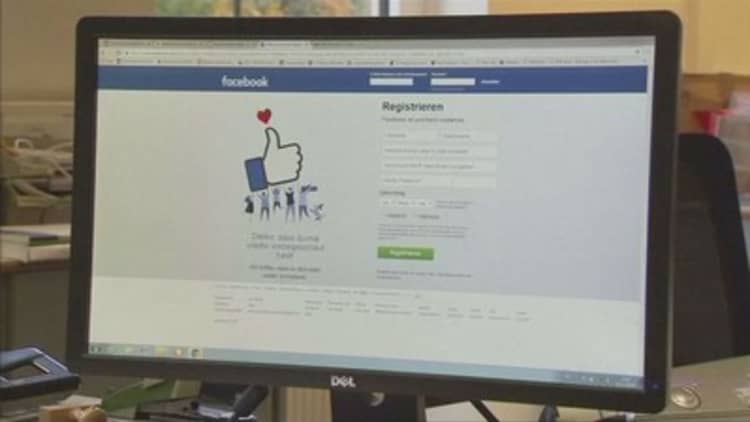Germany's cartel office has found that Facebook abused its dominant market position, challenging the U.S. social network's model of monetizing the personal data of its 2 billion users worldwide through targeted advertising.
Presenting preliminary findings of its 20-month-old probe, the Federal Cartel Office said Facebook held a dominant position among social networks - a characterisation the company dismissed as "inaccurate".
The case is being closely watched in Germany, where concerns over data privacy are strong due to a history of state surveillance under Nazi and Communist rule. Facebook has been running an ad campaign to try to allay those fears.
Separately, Berlin will introduce a law in the new year imposing fines of up to 50 million euros ($59 million) on social media platforms that fail quickly to remove posts that propagate hate speech - a crime in Germany.
The competition authority objected to Facebook's requirement that it gain access to third-party data when an account is opened - including from its own WhatsApp and Instagram products - as well as how it tracks which sites its users access.
"Above all we see the collection of data outside the Facebook social network and its inclusion in the Facebook account as problematic," cartel office President Andreas Mundt said in a statement.

This happens when a Facebook user views a page with a Facebook 'Like' button embedded in it - even if they don't click on the button itself, he added.
On Monday, France's data privacy watchdog said it may fine WhatsApp, the encrypted messaging app, if it does not comply with an order to bring its sharing of user data with Facebook into line with French privacy law.
'Inaccurate picture'
Responding, Facebook said the cartel office had "painted an inaccurate picture" but said it would cooperate with the German investigation.
"Although we are popular in Germany, we are not dominant," its head of data protection, Yvonne Cunnane, said in a blog post.
About 41 percent of Germans have active Facebook accounts, below the 66 percent in the United States, 64 percent in Britain and 56 percent in France, according to a survey by social media agencies Hootsuite and We Are Social.
"A dominant company operates in a world where customers don't have alternatives," said Cunnane, adding that the average smartphone user now accesses seven different communications apps or services.
Facebook, founded by CEO Mark Zuckerberg and fellow Harvard students in 2004, has grown exponentially to become the world's top social network and is valued on the stock market at $525 billion.

It has done so by providing free access to users while analyzing their online behaviour to target advertising, where its revenues rose by half in the third quarter to $10 billion.
The probe by the German cartel office has raised eyebrows because some European Union officials see it as encroaching into an area properly overseen by data-protection authorities under EU-wide rules.
In her blog post, Cunnane noted that Facebook abided by European data-protection laws and would comply with a new General Data Protection Regulation when it comes into force in the EU in May 2018.
The cartel office, which said it was working closely with data- and consumer-protection bodies, expects to publish the final results of its investigation into Facebook in the early summer of 2018 at the earliest.
Although the probe will not result in a fine, it could lead to assurances being sought from Facebook, or certain of its practices being banned, a cartel office spokesman said by way of clarification.

